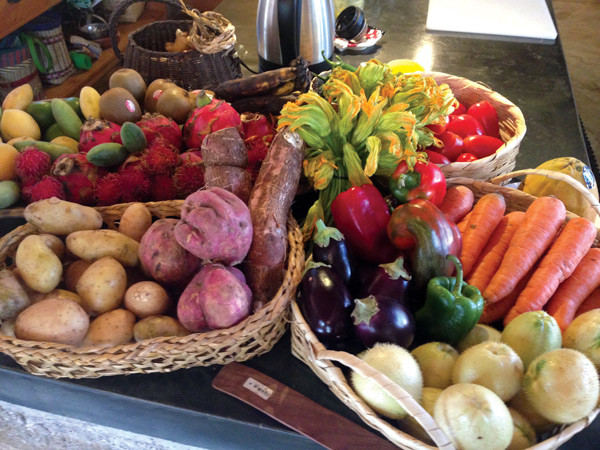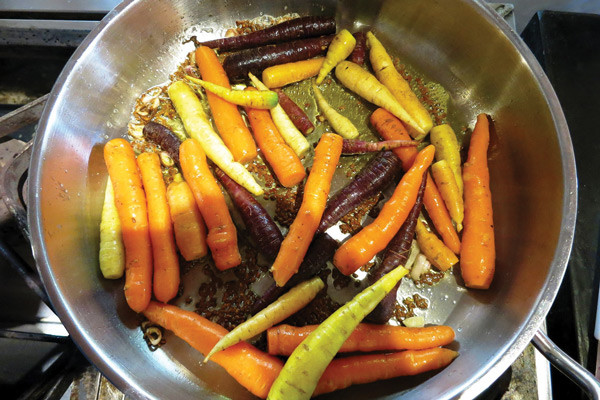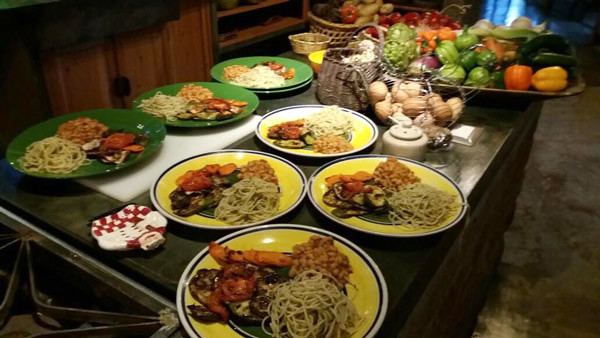Ayurvedically Speaking, following an Ayurvedic diet in Guatemala
Ayurvedically Speaking, you are what you digest.
Following an Ayurvedic diet in Guatemala is so easy! The markets are brimming with beautiful produce, farm-fresh milk and butter are still available, and for locals, lunch is the biggest meal of the day.
Though Ayurveda, the 5,000+-year-old traditional approach to health and wellness was established in India, this does not mean eating only Indian food. Ayurvedic cooking starts with creating a well-balanced meal that provides sufficient nourishment for the whole human: mind, body, senses and soul.
The meal begins with the senses. The aromas that drift toward us; the color, texture and variety; the first bite awakens both touch and taste which is often followed by appreciative “oooohs,” “aaahs” and “mmmms.” It’s a totally sensuous experience!
Timing is everything. “You are what you eat,” but in Ayurveda, “You are what you digest.” Certain rules assure digestion can be at its maximum. For example, chewing well, not drinking much liquid (and never cold liquids) to keep the digestive fire ignited, allowing adequate time between meals to complete the proper stage of the digestive process, and not going to sleep with a full tummy (which also causes a whole array of gastric problems).
Food is used as medicine in Ayurveda. Based on the five elements (ether, air, fire, water and earth), Ayurveda uses two overarching principles: “like increases like” and “opposites decrease.” If one is feeling anxious, worried, nervous (ether and air qualities), foods that ground, stabilize, calm (water and earth qualities) are needed. So instead of a light, airy salad for lunch, I might choose a thick stew or soup. Instead of popcorn for a snack, I might have a cup of hot, spiced milk and a sweet. If one is feeling hot and angry (fire qualities), a good mid-morning drink might be aloe vera water or coconut water instead of a cup of hot coffee or black tea.
A common error that comes up when speaking of Ayurvedic cooking is that it is vegetarian. While yoga, the sister science of Ayurveda, promotes a vegetarian diet, Ayurvedic does not. The properties of the animal are taken into consideration and the same principles are applied; when necessary, animal products are used for healing. When not, a simpler, plant-based diet is encouraged.
Eating is a ritual in Ayurveda. One should take the time to appreciate the food, taste it, feel its nourishing qualities entering the body. Taking time to be grateful for the meal is an important factor in providing sustenance for the soul. In Ayurveda, leftovers are not encouraged. Fresh food has prana – life force energy – which is depleted as food is refrigerated and reheated. Twenty-four hours max is a good rule of thumb.
How to create a Guatemalan meal through an Ayurvedic lens? A lovely rice pilaf (sopa de arroz), creamy black beans (frijoles parados) and over half a plate of fresh seasonal vegetables, sautéed and braised (lid on) in their own juice. Start with some red onion, a touch of garlic, thinly sliced carrots … after the carrots start to soften, add chunks of zucchini or guicoyitos … and finish up with handfuls of fresh greens and a squash blossom or two. On the side you can serve a mild pico de gallo and freshly chopped cilantro … and you’re good to go!
REVUE magazine article by Ginger Hooven
Ginger Hooven, founder and owner of Cafe Condesa, is an Ayurvedic practitioner and yoga therapist who now splits her time between Guatemala and Mount Madonna, California. She has a small Ayurveda – yoga retreat center outside of Antigua in San Juan del Obispo where she gives cooking classes, yoga classes and sees private clients. She arrived in Guatemala in 1986 and never left. Check out casasanjuan.com.gt and www.cafecondesa.com.gt



Reading this post motivates people to tend towards the Ayurvedic diet; it is a very balanced diet which does not have food items which a person might not like or cannot eat, it is just the quantity of the food which is maintained in an Ayurvedic diet and the results are amazing because it is based on traditional herbal medication phenomenons.